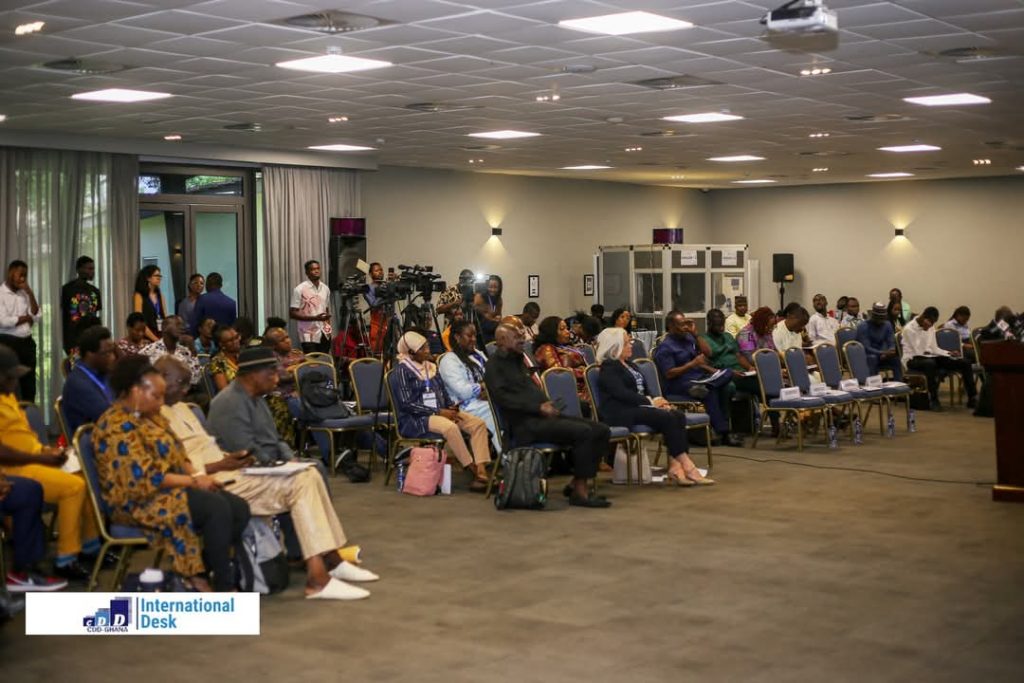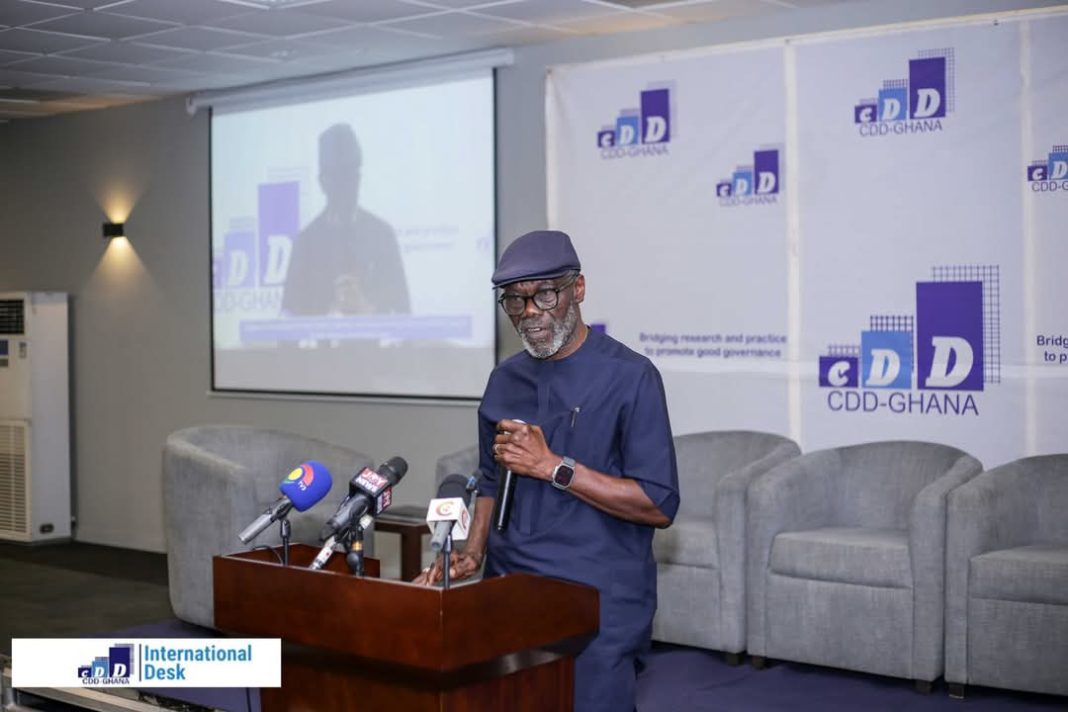By Iddi Yire
Accra, April 24, GNA – Colonel Larry Gbevlo-Lartey, Ghana’s Special Envoy to the Sahelian States, has lauded the Ghana Centre for Democratic Development (CDD-Ghana) for the launch of its International Desk.
The CDD-Ghana International Desk, with support from the National Endowment for Democracy, will serve as a platform for dialogue, knowledge-sharing, and advocacy to shape the continent’s future in an era of global shifts.
“This initiative arrives at a critical juncture in our region’s history, as West Africa finds itself at the convergence of a new hybrid of competing global interests in the milieu of strangulating and debilitating acts of terrorism and a complete loss as to an appropriate response that upholds democratic values,” he said.
Col Gbevlo-Lartey gave the commendation in his address at the CDD Regional Convening on Foreign Powers, Interests and Impacts in West Africa and the Launch of CDD-Ghana’s International Desk in Accra.
The two-day event, which is on the theme: “Navigating Geopolitical Shifts: Foreign Powers, Interests and Impacts in West Africa,” is being attended by civil society leaders, regional institutions, government officials, international partners, and members of the diplomatic community.
Col Gbevlo-Lartey noted that in the effort to prevent, counter or combat acts of terrorism, some West African countries had had to resort to military and security partnerships with foreign powers, which had come under quite some scrutiny by advocates of democratic governance.
“It would appear that we are in a New Scramble for West Africa fraught with competing foreign interests which could be considered as malign or benign influence depending on how one looks at it,” said.
“Unlike the colonial partitioning of Africa the 19th Century, today’s competition is unfolding in the context of sovereign decision making, through security partnerships infrastructure investments, resource extraction agreements, and ideological influence.”
He noted that the players had multiplied, the interests were diverse, and the rules had changed, but the fundamental dynamic remains external powers pursuing their interests across the West Africa region.
He reiterated that what makes this moment particularly consequential was that it coincides with a period of democratic vulnerability.
He said after decades of progress toward democratic consolidation, the West Africa region now witnessed concerning reversals – from military takeovers in neighboring states yet with consequentialist justification which hinge on legitimacy other than legality.
Col Gbevlo-Lartey said it would appear that the central challenge before them was not about choosing between competing foreign powers.
“Our challenge is determining how West African nations can maintain agency and democratic integrity while navigating this shifting geopolitical dynamic with free transparent, competitive and accountable political systems, robust civil society, free press, and independent judiciaries,” he said.
“We must also be candid and blunt in acknowledging that, in many ways, our democratic governments in the region have not lived up to this expectation and have thus left a vulnerability that tends to be exploited in the military takeovers that we are currently saddled with.”

He said the Western democratic partners had fallen short in a few ways in anchoring West African countries to maintain agency and democratic integrity.
He reiterated that lack of mutuality in the pursuit of the well-being of the citizenry as a major and primary goal, contradictory democratic governance principles and policies in different countries across the region, among others had not only undermined confidence in the system professed, but had created openings and the raison d’etre for alternative models that promise development without democratic accountability-a bargain that history tells them comes at great cost to citizens.
Dr Abdel-Fatau Musah, ECOWAS Commissioner for Political Affairs, Peace, and Security, in his keynote address, examined the evolving geopolitical dynamics in West Africa, governance deficits, and ECOWAS’ role in fostering regional integration amidst the withdrawal of Burkina Faso, Mali, and Niger.
Madam Barrie Freeman, Deputy Special Representative for West Africa and the Sahel United Nations Office for West Africa and the Sahel, described the CDD-Ghana’s launch of International Desk initiatives as a timely and strategic response to today’s seismic geopolitical shifts.
“At the same time, the organisation remains firmly rooted in its core mission of promoting good governance, accountability, and citizen empowerment.”
Dr Kojo Pumpuni Asante, Director of Policy Engagement and Partnerships, CDD-Ghana, said the objective of the CDD-Ghana International Desk was to track and analyze global, continental and regional geopolitics trends, assessing their impacts on democratic governance, civic space and inclusive development across Africa.
GNA
CA/
